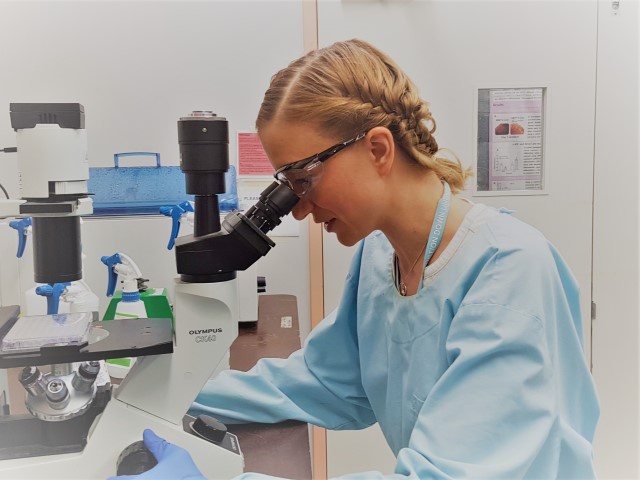
University of Queensland virologist Dr Kirsty Short has received one of eight national Science and Innovation Awards for Young People In Agriculture, and will work to improve the understanding of resistance to bird flu
A School of Chemistry and Molecular Biosciences researcher, Dr Short won the CSIRO Health and Biosecurity award to question why chickens, but not ducks, are susceptible to highly pathogenic avian influenza
“Chickens infected with this nasty strain of influenza can die within 24 hours of contracting the virus, even before developing symptoms,” she said.
“One of the biggest concerns with bird flu is that it can jump from poultry to humans, putting poultry farmers at risk.
“Probably the most deadly strain is the H5N1 which has infected more than 800 humans with a mortality rate of approximately 60 per cent.
“However, what we see in these avian flus when they cross into the human population is that they’re not then easy to spread between humans.”
Dr Shortwho won a Queensland Tall Poppies award last year, said the avian flu virus predominately targeted the cells that line the blood vessels — known as endothelial cells.
Her project will look at the immune response of these endothelial cells in chickens and compare it to the response in ducks.
“If we can identify a particular immune gene that is lacking in chicken endothelial cells or it’s just poorly expressed in the chicken, we can try and engineer that into poultry populations, leading to
improved biosecurity and poultry health,” she said.
A second UQ researcher, UQ School of Agriculture and Food Sciences PhD student Rhys Pirie, also received two Innovation Awards in the scheme for his project to develop next generation fertilisers by recycling nutrient-rich wastes.



